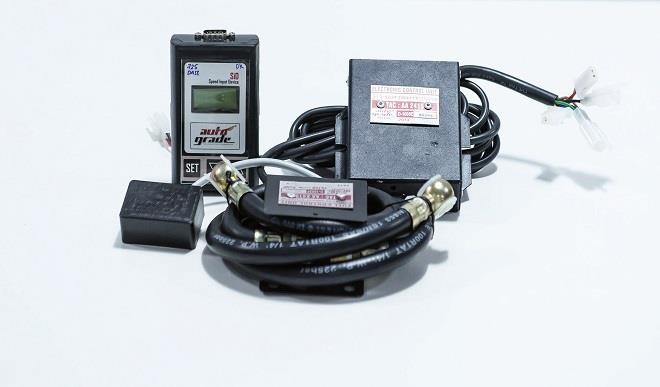How Cabbies feel about speed limiters
The Federal Road Safety Corps (FRSC) began enforcing the installation of speed limit devises on commercial vehicles nationwide on October 1 to reduce road accident fatalities. A recent statement by the commission showed they had issued about 2, 800 commercial vehicles tickets of fine. However, some drivers in Abuja, Nigeria’s capital city continue to kick […]


The Federal Road Safety Corps (FRSC) began enforcing the installation of speed limit devises on commercial vehicles nationwide on October 1 to reduce road accident fatalities. A recent statement by the commission showed they had issued about 2, 800 commercial vehicles tickets of fine. However, some drivers in Abuja, Nigeria’s capital city continue to kick against the enforcement, while others remain passive.
Steve Ogale, Vice Chairman of a park at Julius Berger Junction said he doesn’t understand the essence of the speed limiter because as far as he is concerned, it won’t prevent crashes. “I don’t see a taxi that runs a speed of up to a hundred,” he pointed out, adding that personally, he doesn’t need it. He argued that his taxi is worth less than a hundred thousand naira and the speed limiter is N35, 000. “Private cars owned by ‘big men’ with escorts drive at high speed. Why can’t they start with them? We hardly speed.”
Another driver, Alex Chukwezi, also said the speed limiter doesn’t affect him in any way because he doesn’t over-speed and claimed to maintain a limit of 60 km per hour within Abuja. He pointed out that it’s only when drivers are on high ways that they pass that mark. Therefore it is unnecessary to restrict them.
Ogale further reasoned that if he is being chased by armed robbers who don’t have the speed limiter, he will be outrun. He advised that a devise that indicates drivers are over-speeding should be used and those found wanting nabbed, instead of the other way round. “The FRSC should focus on putting the required structures on ground. I bought their book for N600. There should be road signs that indicate speed limits on different parts of the city,” he said, and recalled how they started with e-coding and coded his driver’s license in 2010. But this doesn’t work at present.
Cab drivers Muyiwa Akitunde and Jonas Friday described their cars as cheap wrecks. “My speedometer doesn’t even work and yet I have to buy a speed limiter. The situation in this country now is difficult. You buy fuel and your money is already finished,” Akitunde said.
They aren’t alone. Ifanyi Simon complains about the way the FRSC are going about it and insisted that if they must implement it, then they should make it free for everybody. “If I over-speed then I can pay a fine, but telling us to pay N36, 000 for speed limiters is uncalled for.”
Oji Ramon narrated how they were approached concerning the speed limiter device and its enforcement on October 1. “Some of us argued with them. It’s not polite for such a device to be forced on us. I don’t exceed the eighty mark on my speedometer,” he said.
But Suleiman Adama who has been on Abuja roads for about twenty years is indifferent because he doesn’t make long journeys with his car and only drives to and from Julius Berger bus stop to Pape.
The enforcement of the use of the speed limiter device so far has been subtle, where commercial vehicles are stopped and offenders given citations. Corps Marshal of the FSRC, Dr. Boboye Oyeyemi had earlier assured that for now the enforcement will have a human face. Organised transport unions would be involved in the advisory enforcement by joining FRSC to patrol. Commercial vehicle operators have been advised to patronise the devise as there was no going back on its full enforcement beginning from January 2017.
